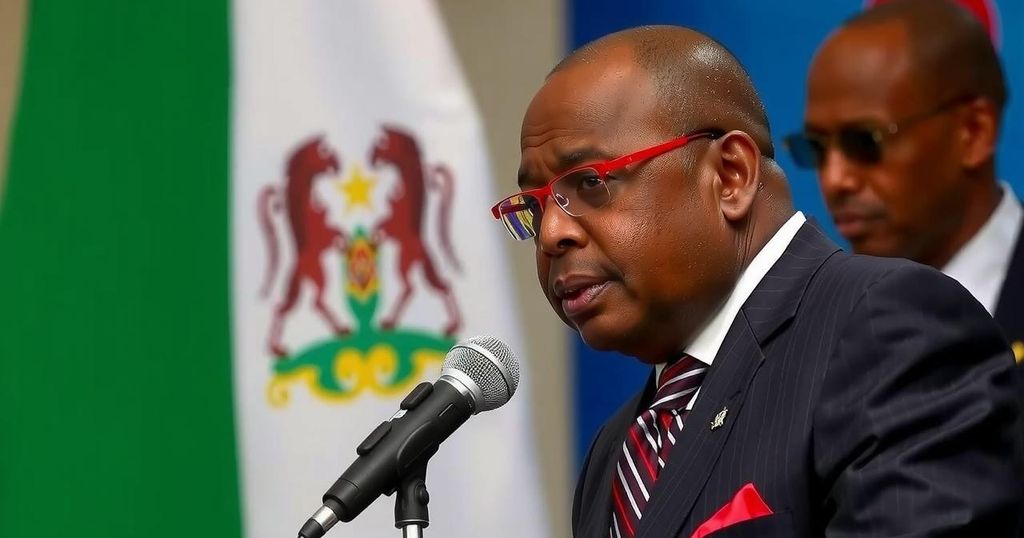Indefinite Postponement of Elections Deepens Political Crisis in Guinea Bissau

President Umaro Sissoco Embalo has postponed Guinea Bissau’s legislative elections set for November 24 indefinitely, prolonging political uncertainty. The decision follows warnings of logistical and financial challenges. The country continues to struggle with economic issues and political turmoil since the dissolution of parliament in December 2023, complicating future electoral processes.
On Monday, President Umaro Sissoco Embalo of Guinea Bissau announced the indefinite postponement of the legislative elections initially scheduled for November 24, further extending the political impasse in the nation. The elections were announced in response to the dissolution of parliament in December 2023 following violent clashes that Embalo deemed an attempted coup. Despite earlier expectations suggesting the elections would proceed, the warning by Aristides Ocante da Silva, Minister for Territorial Administration, about logistical and financial challenges indicated otherwise. On November 1, he expressed doubts about the feasibility of the elections, which led to the president’s decision to formalize the postponement this week. Embalo subsequently revoked the decree that called for the elections, but a new date for the vote has yet to be established, with the timeline pending further issuance. The ongoing uncertainty regarding these elections is paralleled by indecision concerning the upcoming presidential elections set to replace President Embalo. The environment has been complicated by the dominance of a coalition led by the African Party for the Independence of Guinea and Cape Verde (PAIGC), which has held a parliamentary majority since the June 2023 elections, resulting in a contentious relationship with the president. Guinea Bissau, grappling with severe financial difficulties, has struggled to finance the electoral process, reflecting its status as one of the poorest countries globally. The nation, which has endured a history of corruption and significant political upheaval, remains in a challenging situation despite strides towards constitutional restoration in the previous decade. President Embalo’s election in December 2019 was marked by controversy, and the ongoing state of political turbulence significantly impacts the prospects for future governance and stability within Guinea Bissau.
Guinea Bissau, a small West African nation that struggled with political instability and economic hardship, has a long history marked by coups and corruption since its independence from Portugal. Despite its efforts to return to constitutional order in the past decade, the country continues to experience significant political unrest. The recent decision by President Embalo to postpone legislative elections underscores the ongoing challenges faced by the government in reconciling competing political factions and addressing the nation’s dire financial situation. The PAIGC’s dominance in parliament has created a precarious balance of power that complicates the electoral process and governance.
The indefinite postponement of legislative elections in Guinea Bissau highlights the persistent political instability and financial constraints facing the country. President Embalo’s government continues to grapple with the realities of cohabitation with a powerful opposition, which has exacerbated tensions in the political landscape. Without a clear path forward for both legislative and presidential elections, the prospects for a stable and effective governance structure in Guinea Bissau remain uncertain. The need for a strategic resolution to these political challenges is critical for the country’s future.
Original Source: punchng.com






